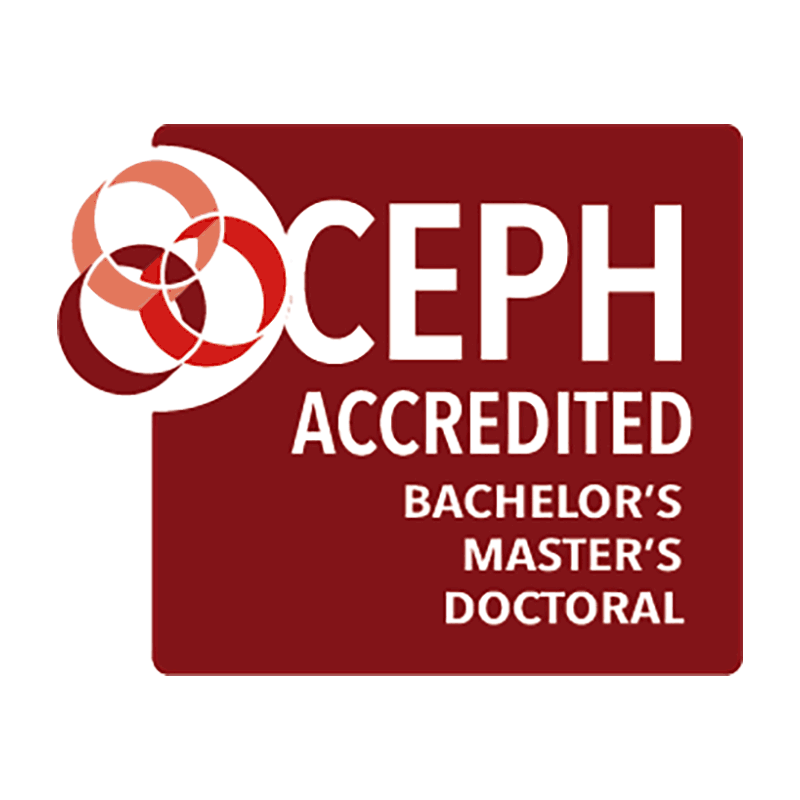Earn Your Graduate Certificate in Clinical Research Online
Position yourself for success in one of healthcare's rapidly growing fields. Designed for working professionals, Kent State University's Online Graduate Certificate in Clinical Research program allows you to customize your coursework to match your career goals—whether you're focused on research methods, regulatory affairs, or data management and analysis. Study with experienced faculty from Kent State's College of Public Health and build specialized expertise that’s in demand across the swiftly expanding landscape of clinical research.
Program Snapshot
- 100% online course delivery
- Total credits: 12
- Approximate cost per credit: $695 in state, $705 out of state
- Earn your certificate in as few as 2 semesters
Build the Career You Want
Take your career to a higher level with Kent State’s affordable, flexible undergraduate and graduate public health programs. Our 100% online programs allow you to keep up with your current responsibilities while you study. Find out how these programs can help you create the career and positive public health impact you want to have.
Download our guide to learn more about:
- Career Opportunities
- Customizing Your Degree
- The Student Experience
- Admission Requirements
- Tuition and Financial Aid
Download Program Brochure
This will only take a moment.
Get Career-Boosting Clinical Research Skills in as Few as Two Semesters
You are the ultimate expert on your career goals and interests. Recognizing this, the Graduate Certificate in Clinical Research program from Kent State’s College of Public Health empowers you to choose exactly the courses you need to reach your goals. If you choose to include a clinical research practicum, a dedicated coordinator will help you find a placement for on-site practical experience in your community so you can translate your new learning to real-world impact.
Complete the certificate on your own schedule and elevate your profile in this core health profession. If you decide to earn a master’s degree, the credits for this certificate will transfer to the STEM-designated Master of Science in Clinical Epidemiology or the STEM-designated Master of Public Health in Epidemiology.
Education That Works for You
Courses in this flexible program are delivered asynchronously, helping working professionals like you maintain your other commitments and responsibilities while pursuing professional education goals.
Kent State University is proud to be accredited by the Council on Education for Public Health (CEPH) and recognized for outstanding service to the extended military community, and all students, with the Military Friendly Gold Designation.
Clinical Research Graduate Certificate Program Overview
Kent State University's flexible program offers clinical research certification for professionals. It allows you to study on your own schedule and get optional practical experience in your community. Choose your curriculum to advance your understanding of a range of topics in the field, digging deep into one area or sampling several.
Clinical research: To deepen your expertise in clinical work, select from subjects including clinical epidemiology research methods, biostatistics, qualitative methods or experimental designs.
Public health: Learn about the public health perspective on clinical research, covering topics such as the fundamentals of public health epidemiology, pharmacoepidemiology, ethics and regulatory affairs.
Research management: Examine clinical research through various management lenses, including cost-benefit analysis, ethical issues, healthcare privacy and security, and clinical trials management.
Learn Online, Excel in the Lab
Kent State’s Graduate Certificate in Clinical Research offers the opportunity to include a clinical research practicum with your online coursework, which can elevate your professional profile by strengthening your research skills. If you choose this option, a dedicated practicum coordinator will help you arrange a placement in your community.
Stack Credentials to Raise Your Professional Profile: Apply Your Certificate Credits to a Master’s Degree
Deepen your healthcare expertise and enhance your resume with the Kent State online Master of Public Health (MPH) program. Designed for working professionals with a passion for advancing healthcare, this rigorous and respected 46-credit-hour program also offers asynchronous coursework, enabling you to seamlessly manage professional and personal commitments.
Apply your clinical research knowledge immediately in the workplace and apply your credits to your Master of Public Health in Epidemiology or the Master of Science in Clinical Epidemiology. With this innovative program design, you can save on tuition for your master’s degree while solidifying your expertise and positioning yourself for leadership roles in the evolving healthcare landscape.
Explore the Online MPH in Epidemiology
Explore the Online MS in Clinical Epidemiology
Program Structure and Organization
Choose four of the 21 available courses to design your 12-credit-hour online clinical research graduate certificate to meet your professional goals. Focusing on one course at a time, you can complete two seven-week courses each semester while keeping up your other commitments. If you choose to include the clinical research practicum, a dedicated coordinator will help you find a local placement where you can translate your learning into real-world practice.
The Flexibility and Support You Need to Succeed
- Six rolling start dates throughout the year so you can begin the program when it fits your schedule
- No GRE requirement
- Asynchronous courses and a powerful, user-friendly learning management system
- Four focused seven-week courses, including an optional clinical research practicum in your community
Earn your graduate certificate in as few as two semesters, while keeping up with your other life commitments with the focused, asynchronous online courses in Kent State’s online clinical research program. Let Kent State help you achieve your professional public health goals.
A Career That Counts in an Expanding Industry
The field of clinical research is undergoing significant expansion. O*Net Online, a career site sponsored by the U.S. Department of Labor, characterizes many clinical research roles as having a bright outlook, with rapid job growth and new or emerging occupations. A sampling of occupations within this group of fast-growing professions includes clinical trial managers, clinical research nurse coordinators, clinical research scientists and toxicologists.1,2
Clinical research pays well. Chart your course.
With a Graduate Clinical Research Certificate, you'll be positioned to choose from diverse roles that value clinical research credentials:

Beyond the Paycheck: The Rich Rewards of Clinical Research Careers
In addition to financial benefits and job security, clinical research roles offer the profound satisfaction derived from contributing to medical science and public health advancements. Careers in clinical research are defined by their potential to innovate, improve patient outcomes and tackle health challenges with integrity and dedication.
Kent State is committed to fostering leaders in clinical research, combining academic rigor with practical research insights and opportunities. Here, you can train to contribute effectively to healthcare advancements, addressing ethical, legal and technical challenges with professionalism and compassion. Embrace the journey with Kent State, where your academic and professional aspirations can help improve lives.

Clinical Research Graduate Certificate Program Outcomes
The Clinical Research certificate equips you for advanced roles in clinical research, research management or public health by building knowledge on a range of essential topics. You can focus on clinical research practices and regulatory standards critical for the field, prepare to navigate ethical and regulatory complexities with confidence and apply different management perspectives to clinical research or a mix of approaches. Whichever emphasis you choose, Kent State's online clinical research certificate will enhance your capacity to contribute meaningfully to public health and clinical research endeavors.
Fast-Track Your Research Career
In Kent State’s clinical research certificate program, you’ll gain skills and expertise that will make you valuable to organizations across the continuum of healthcare and public health. Leading organizations in these areas will welcome your expertise:
- Government agencies
- Research institutions
- Healthcare providers and insurers
- Schools and higher education institutions
- Non-profit organizations
- Global health organizations
Courses
Choose four courses from this list to shape your curriculum and support your professional goals. Each course earns three credit hours.
BST 52019 BIOSTATISTICS IN PUBLIC HEALTH (3 CREDITS)
EPI 50013 Clinical Epidemiology Basics
EPI 50014 Clinical Trials Management
EPI 50017 Pharmacoepidemiology
EPI 50018 Regulatory Affairs in Clinical Research
EPI 52017 Fundamentals of Public Health Epidemiology
EPI 63019 Experimental Designs for Clinical Research
EPI 63021 Ethical Issues in Public Health and Clinical Research
EPI 63192 Research Practicum in Clinical Epidemiology
HPM 63006 Cost-Benefit Analysis in Public Health Programs
HPM 63008 Healthcare Privacy and Security
SBS 63010 Qualitative Methods for Public Health Research
SBS 63011 Qualitative Data Analysis
Questions and Answers
Have questions? We have answers.
Choosing the right online program comes with lots of questions, and our admissions outreach advisors, Taylor and Lilly, are here to help you sort through them all. Connect with this friendly, knowledgeable team for personalized guidance. They’ll make sure you have everything you need to feel confident about your next steps at Kent State.

- Retrieved on August 28, 2025, from onetonline.org/link/summary/11-9121.01
- Retrieved on August 28, 2025, from onetonline.org/link/summary/19-1042.00
- Retrieved on August 28, 2025, from payscale.com/research/US/Job=Clinical_Trial_Manager/Salary
- Retrieved on August 28, 2025, from ziprecruiter.com/Salaries/Clinical-Research-Nurse-Salary#Yearly
- Retrieved on August 28, 2025, from ziprecruiter.com/Salaries/Toxicologist-Salary
- Retrieved on August 28, 2025, from www1.salary.com/institutional-review-board-irb-director-salary.html



